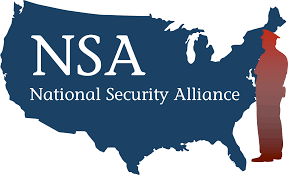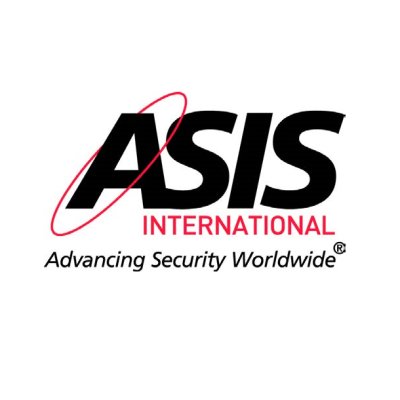
Advice for security guards on the rise
Tips, Tools & Tactics August 2025 Vol 2
On the Front Lines: Real Problems Guards Face on Every Shift and Tips on How to Deal
The Art of Staying Cool Under Fire
Guards need to stay calm and professional in any situation. Mastering de-escalation techniques will give you the confidence to handle anything that comes your way.
Dealing with Difficult People and Challenging Situations
Guards must often interact with people who are in distress, intoxicated, or angry. During any altercation, they must remain professional at all times and resist the urge to respond with anger or confrontational behavior. Easier said than done! However, with the right mindset and training, it is possible.
Aggressive behavior requires de-escalation techniques. Consider taking a specialized course to enhance these skills.
· Remain calm
· Control your emotions
· Communicate clearly and calmly
· Listen first, try to empathize
· Do not allow bias to enter the equation
· Avoid arguing with the individual
· Use open body language
· Call for backup if needed
· Document the incident in detail
Polite, Professional, and In Charge
Guards are under pressure to maintain a positive public-facing image but where do you draw the line between the smile and the shield? It’s hospitality with a backbone that emphasizes respect first, rules always.
Customer Service vs. Enforcement
Guards must balance the need to provide excellent customer service with the enforcement of rules and protocols. The ultimate goal is to treat all people with respect and dignity, but boundaries must be set. In many cases, guards are responsible for enforcing policies that people may not like or delivering news they don’t want to hear.
The key to minimizing frustration in these situations is to approach them with empathy and clarity, and remember that your tone matters as much as your words.
· Speak with clarity, don’t use jargon, and explain the situation fully.
· Use a calm, respectful tone and deliver the message with empathy.
· Practice active listening. People want to be heard and will feel respected if you do this.
· Offer alternatives, such as coming back at a later date or suggesting how they can avoid the situation in the future—always much better than a hard “no
Turning Heat into Harmony: Defusing Tension Like a Pro
Conflict happens, and guards are often the first on the scene. Preventing conflict from escalating is a delicate balance of diplomacy, empathy, and authority.
Resolving Conflicts
Guards face tough people and situations every day. These conflict resolution strategies can help to achieve a peaceful resolution and prevent escalation.
· Seek to understand the issue, including the needs and concerns of everyone involved.
· Communicate clearly and calmly, showing understanding of others’ perspectives.
· Practice active listening and empathy.
· Use open body language.
· Seek common ground through shared goals to build rapport.
· Play the negotiator, if possible, or try to mediate a resolution as you guide the process.
· Try to find a solution that benefits all parties.
· Keep your emotions in check, as escalating tension adds fuel to the fire.
· Be assertive but non-aggressive.
· Call for backup or engage law enforcement if the situation seems dangerous or becomes untenable.
· Calmly explain consequences and be prepared to follow through.
· Document the incident in detail as quickly as possible.
4. Wellness Behind the Badge: Finding Endurance for Every Shift
Guard work wreaks havoc on sleep patterns, relationships, anxiety, and mental health. Doing a great job also means taking care of yourself so you can be the best version of you, in and out of the uniform.
Addressing the Physical and Mental Demands of Guard Work
Guards often work long shifts, sometimes spanning 12 hours or overnight. Shift work can challenge even the fittest individuals as schedules are unpredictable, and sleep might be hard to come by.
When you’re expected to be fully alert and ready to spring into action, fatigue is a barrier. The job may entail extended patrols and walking long distances, and if you’re exhausted, it’s possible to miss critical details or expose yourself to hazards that could cause injury.
Additionally, the job can be highly stressful and mentally taxing, leading to chronic anxiety and depression.
Here’s how to handle it:
· Physical fitness is a must. Fit guards have better response times and can handle physical challenges more easily. Running, weight training, swimming, or playing sports on days off can help build physical resilience, improve sleep, and mental acuity.
· Rest and recovery are also essential. During the shift, breaks and proper nutrition are critical for maintaining alertness and fending off fatigue. Off the clock, getting enough rest and doing things you love helps to give your brain and body a break so you can come back refreshed.
· Proper training in self-defense techniques, emergency response, and conflict resolution helps to build confidence. If and when you are in a challenging situation, these skills will engage naturally and reduce the stress you would otherwise experience.
From Overtime to Opportunity: Escaping the Low-Pay Loop
Guarding is a high-turnover industry for a reason. But if you love the work for its good points, there are ways to build a future and turn the grind into growth.
Beyond the Uniform: Other Challenges Guards Face Every Day
Many security guard positions pay low wages and limited advancement potential, which often forces talent out of the industry in search of greener pastures. If you love your job but don’t love your outlook, there is a way to turn the tables. Self-directed online training helps to enhance your skills, elevating your value to employers and potentially putting you in line for better postings, higher pay, and possibly promotion into management roles.
Explore Defencify’s on-demand courses for continuing education modules that will help you reach these goals. Courses are fully online and include Conflict Resolution, De-Escalation Techniques, Crowd Management and Control, First Aid, Emergency Response, Crisis Intervention, Narcan Administration, and more.
Other problems training can address include poor public perception and evolving threat environments, which can make the job exceedingly challenging on a daily basis. The right training ensures guards have the tools, knowledge, and confidence to approach any situation with professionalism, which may help to ease the stress and unpredictability.
Lastly, a guard’s legal liability is always a concern. Every guard must be aware of local, state, and federal laws and regulations, as they will be held accountable for their actions. In cases of injury or negligence brought before the court, guards and their firms are often named in the suit and called upon to testify. Guards can protect themselves in the following ways:
· Understand the scope and limit of their legal liability at the local, state, and federal levels.
· Undertake comprehensive guard training to gain confidence in these matters.
· Become knowledgeable about new and evolving threats by taking courses or reading industry news to boost awareness.
· Know when to engage law enforcement.
· Document every incident in as much detail as possible—in plain, concise, observational language while avoiding bias or opinions.
· Use technology when available to reinforce the documentation.
Many of the tips we’ve shared today have a common theme: training and continuous learning are excellent ways to address the challenges guards face every day.
Browse Defencify’s course curriculum to enrich your journey.






